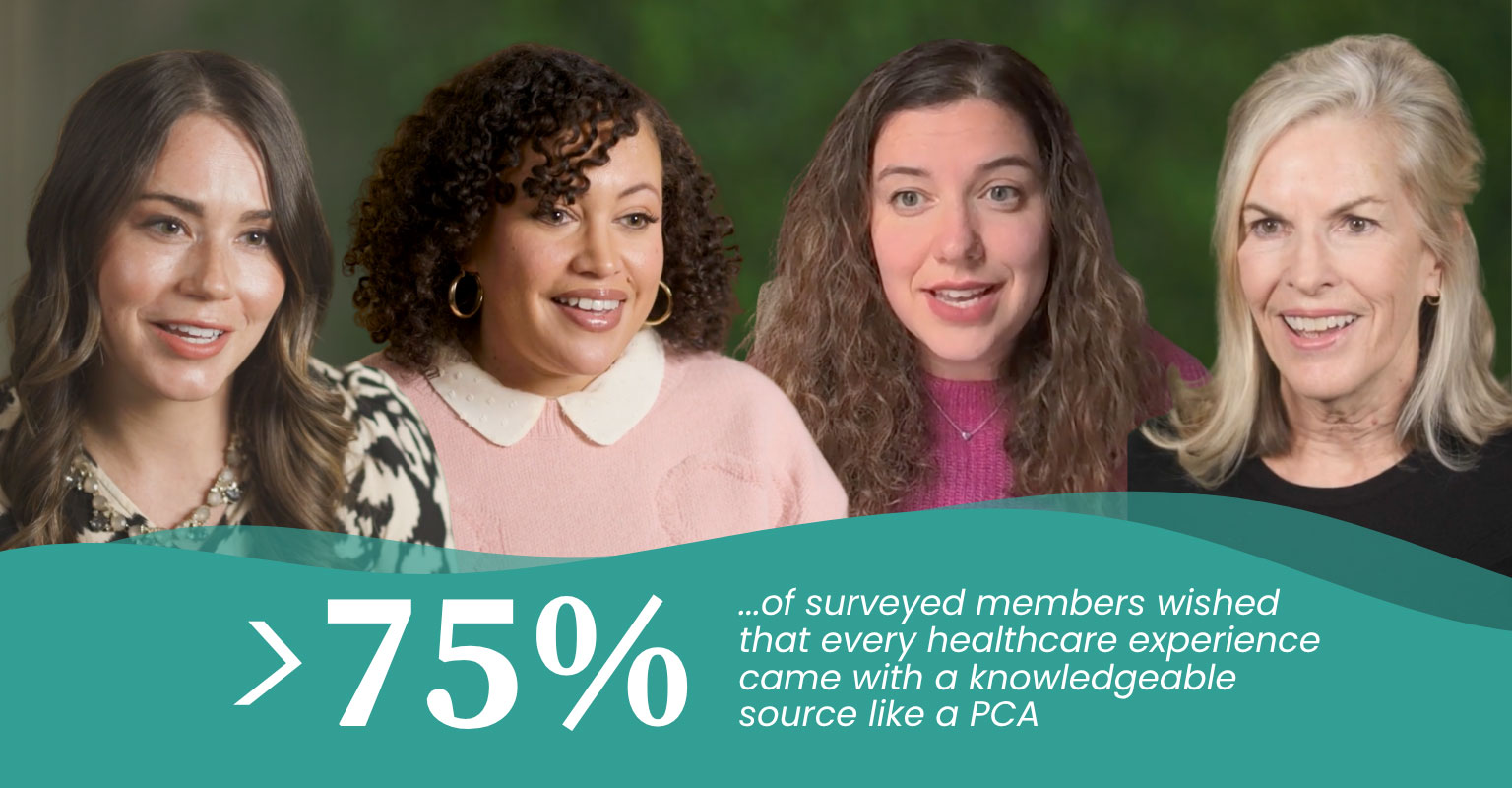Pictured above: Our PCAs across pregnancy, fertility, parenting and menopause.
By Lissa Kline, SVP, Member Services
Taking care of your mental health – from stress to anxiety, to more complex issues – is incredibly important at all stages of life. This is something I have known and embraced, and the reality of the true significance has become even more abundantly clear to me throughout my work in healthcare. As a licensed clinical social worker, I have facilitated support groups and worked with individuals and couples in a fertility clinic. I managed a donor IVF program, an Oncofertility program, and a fertility program for people living with HIV. At best, these journeys can be complicated and disruptive; at worst, mental health greatly suffers.
In a recent survey we conducted of Progyny members, over 75% of respondents said that the family building journey created added stress for them. This wasn’t a surprise to us at Progyny, this is reported in survey after survey. In my role of overseeing the team of Progyny Care Advocates (PCAs), I see firsthand every day the impact of a dedicated point of contact who is integrated into the care experience. They can make all the difference as people cope with navigating the sometimes-complex path to family building.
During Mental Health Awareness Month, we recognize that life transitions can bring a range of added stressors – financial, the complications of health insurance, the unknowns of health and outcomes, challenges to how one sees oneself, and disruptions to relationships – both personal and professional. While we see this a lot in fertility, it also runs through all phases of family forming, pregnancy and birth, postpartum, parenting and menopause.
In May, the theme of the National Alliance on Mental Illness’s campaign is “In Every Story, There’s Strength.” We couldn’t agree more, having built our model on the premise that every member’s health journey is powerful and unique. So here’s a further look at how our PCA program is making a difference each day.
Making a match
Since each member story is unique, each PCA is matched to support the need. Based on their intended pathway—for example, conception, pregnancy, adoption or menopause and midlife—an expert familiar with the journey is matched to the member. Identity or lived experiences also play a role in the PCA matching process. Same sex couples experience different treatment pathways than heterosexual ones in family formation, for instance, so our PCAs ensure they meet each member where they are. We affirm members by guiding them along their unique paths.
PCAs are equipped to support partners, too, with education and emotional support to help reduce stress and anxiety. Despite fertility affecting both partners, sometimes men are left out of the conversation.
And because each PCA is a constant; a dedicated, single point of contact who is invested in the complete story—they know the member, what she’s been through, what her family’s goals are, and the best ways to guide the member through decision-making. Over two-thirds of Progyny members in the survey said that PCAs have helped reduce their stress. Reduced stress around these experiences supports improved physical and mental health for positive outcomes.
Connecting to resources
PCAs are subject matter experts at the center of an educated care team. They are integrated with Progyny’s provider network and clinical educator teams so members have full access to care experts for treatment and education to take important next steps of care. Whether it’s a consult, advice, or background information members need, PCAs connect them to the right person who will help. They also provide access to our robust library of curated educational resources including articles, videos, and podcasts to support each member’s learning preferences.
We’ve found that educating members empowers them—from preconception support to optimizing wellness through midlife. Educated and empowered people make better choices about their healthcare and feel less stress about their care journey. PCAs are passionate about being the keeper of each story, the “quarterback” of an expert cohesive care team that is invested in each member’s success—whatever that looks like for them. In fact, over 65% of our survey respondents reported that their PCA helped them feel more educated and empowered in their health journey; separately, members also noted PCAs helped them better communicate their needs with their doctor.
For example, when a member receives positive results of a fertility treatment cycle, the dedicated PCA is prompted to reach out and support the member’s next steps. Clinical integration of important data is able to facilitate the very human connection that enhances support for the member wherever they are in their process. The PCA also uses simple screening tools for the detection of depression and anxiety symptoms. If the member needs a higher level of behavioral health support, the PCA is able to facilitate making that important provider connection for engagement. I’ve witnessed the lasting impact of this screening on numerous occasions.
So this mental health month, whatever your story, wherever you are in your health journey, remember that you’re not alone. We are invested in supporting your success story, helping you thrive with a healthy mind no matter what transitions or challenges you face. Our PCAs facilitate connection, education, and empowerment for your desired outcomes, benefits that keep me engaged and motivated to make a difference each day. Over 75% of members said they wished that every healthcare experience came with a knowledgeable source like a PCA.
